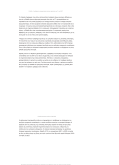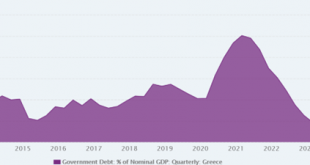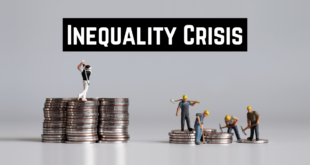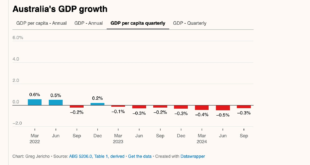There’s been a recent fuss in various media arising from a tweet from economist Ben Golub regarding astonishment that economists haven’t “worked through” Smith and Marx. English professor Alex Moskowitz chimed in with a claim that economics can’t be a real discipline because economists don’t know the history of their own discipline. This claim is oversold as regards Smith. Every econ student gets the pin factory example of scale economies and the standard quote about the butcher,...
Read More »Απομυθοποιώντας τα κυβερνητικά οικονομικά «θαύματα» – ΠΡΙΝ 5-1-2025
The economic policy legacy of the Justin Trudeau Liberal Government, 2015 to 2024
I confess: I was disappointed when the Justin Trudeau Liberals won the fall 2015 election. I was hoping for an orange break-through. So, it comes with some irony that I find myself defending the economic policy legacy of the Justin Trudeau Liberal government nine years hence. The acute drama that unfolded in December with the Finance Minister’s resignation ahead of a Skip-the-Dishes delivery of the 2024 Fall Economic Statement has been commanded by daily obituary writing by...
Read More »Once again on the shadow playing of Greek capitalism
Once again on the shadow playing of Greek capitalism Stavros Mavroudeas Professor of Political Economy Panteion University Diachronically, at the end of the year and with the parliamentary submission of the budget, it ‘rains’ with hypocritical publications where the incumbent government aggrandizes the economic situation. Accordingly, this year too, the right-wing New Democracy government is constructing a new ‘success story’ (as every previous government had done). And...
Read More »How inequality causes financial crises
from Lars Syll One way that inequality precipitates debt bubbles begins with “relative deprivation.” This concept concerns the discontent people feel when they compare their socio-economic status, measured by income, wealth, consumption, or other indicators of perceived economic welfare, with that of their richer counterparts. Economists have suggested several ways that this discontent may translate into indebtedness. One theory holds that people of a given income level may try to...
Read More »Christmas thoughts about counting the dead in zones of armed conflict.
In those days Caesar Augustus issued a decree that a census should be taken of the entire Roman world. (This was the first census that took place while Quirinius was governor of Syria.) And everyone went to their own town to register. Luke 1:3 (as will turn out below, this quote is not frivolous) Summary. The Gaza Ministery of Health, Airways and the World Health Organization have published robust data sets on victims of war-related violence in Gaza. Médecins Sans Frontières...
Read More »Mainstream distribution myths
from Lars Syll Pretending that the distribution of income and wealth that results from a long set of policy decisions is somehow the natural workings of the market is not a serious position … Pretending that distributional outcomes are just the workings of the market is convenient for any beneficiaries of this inequality, even those who consider themselves liberal … But we should not structure our understanding of the economy around political convenience. There is no way of escaping the...
Read More »Health insurance killing: Economics does have something to say
from Dean Baker I’m not one to generally tout the wisdom of the economics discipline, but it actually does offer some useful insights into the likely motive for the murder of Brian Thompson, the CEO of United Healthcare (UHC). According to media accounts, the suspect, Luigi Mangione, was angered by his own and others’ experiences being turned down when submitting claims for healthcare service. United and other insurers make a profit by restricting the claims they pay, so their profit...
Read More »Debunking mathematical economics
from Lars Syll It is a great fault of symbolic pseudo-mathematical methods of formalising a system of economic analysis … that they expressly assume strict independence between the factors involved and lose all their cogency and authority if this hypothesis is disallowed; whereas, in ordinary discourse, where we are not blindly manipulating but know all the time what we are doing and what the words mean, we can keep “at the back of our heads” the necessary reserves and qualifications and...
Read More »RBA policy is putting all our futures at risk
I wrote this for a Guardian panel. The published version was cut for space reasons, so here’s the full version The central concern expressed by the Reserve Bank in defending its high-interest rate policy is that expectations of higher inflation may become entrenched, requiring a further, more painful round of contractionary monetary policy in the future. Even after stripping out the effects of various “cost of living measures”, the RBA’s estimated core inflation rate is only just...
Read More » Heterodox
Heterodox







